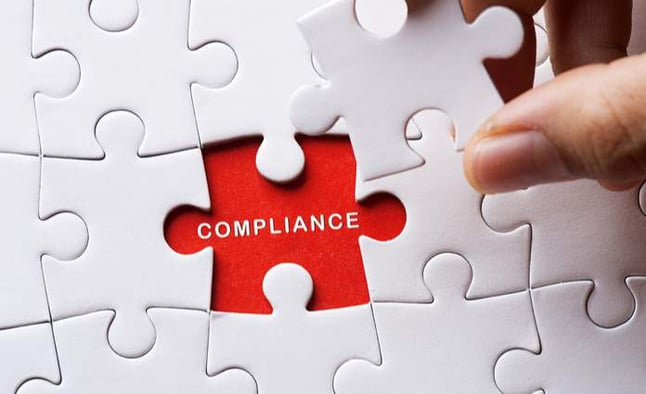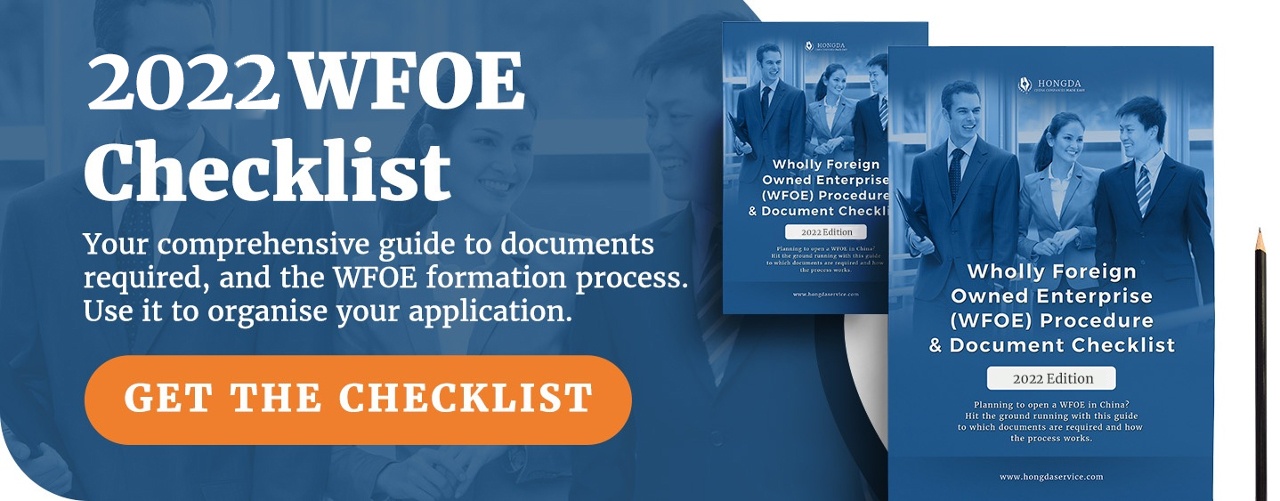Keeping your China WFOE structure compliant, current and out of the cross hairs can be a challenging task. Chinese business law is diverse and complicated, and it is important that you stay on top of it. We are going to take a look at how you can make sure your China WFOE structure is currently compliant with these laws, and what steps you can take to prevent any unwanted scrutiny.
You must have someone in your company or preferably a consulting agency that actively follows and understands Chinese law. Current information isn’t always readily available and almost certainly not in English, so it is important to have someone keep their ear to the ground about any sudden changes or shifts in compliance laws. You will need someone actively monitoring this on the ground, as it changes with little or no warning, and where there’s smoke there’s fire.
How Do I know if My WFOE Structure is Currently Compliant?

There are essentially 4 points you need to look at to make sure your China WFOE structure is compliant and up to date:
Corporate Income Tax Compliance
Tax compliance requires the knowledge of a local tax accountant or similar resource. The State Administration of Taxation (SAT) oversees all kinds of tax paid by corporations, but only corporate income tax (CIT) requires annual reconciliation. The deadline for submitting the CIT Reconciliation Report to the Tax Bureau is May 31 every year, however, the investigation of the tax compliance could last to the end of the year, and companies should be prepared to provide supporting documents upon demand from the Tax Bureau.
Every year around March, depending on the area, the local Tax Bureau will issue annual guidelines on CIT reconciliation. The CIT Reconciliation Report is examined by the Tax Bureau to see if all tax liabilities have been fulfilled under tax law. This has to be done annually and failure to comply could result in heavy penalties.
Statutory Annual Audit Report
Company Law mandates the annual audit of financial reports, with entity-specific laws like WFOE law requiring this audit to be conducted by a Certified Public Accountant(CPA) firm in China. The objective of this audit is to ensure companies are meeting Chinese financial and accounting standards.
Usually, CPA firms start preparing annual audit reports in January, directly after closing last year’s account. The procedure takes all of two months, and the audit report needs to be finished before the May 31 tax-filing deadline.
Many foreign investors want to know exactly what’s going on in their China WFOE, and an upgrade to an in-depth audit done according to Western best practices, someone to design, supervise and assist with audit execution are now becoming commonplace.
Audit Report for Foreign Exchange Reconciliation
All forex transactions in and out of China are strictly controlled by the State Administration of Foreign Exchange (SAFE), the Bureau under the People’s Bank of China inspects foreign exchange transactions. Each year, SAFE requires an audit report for foreign exchange reconciliation to demonstrate the legality of a company’s foreign currency inflows and outflows.
This, as you probably guessed, requires an authorized Chinese CPA firm to audit report. The guidelines on Annual Foreign Exchange Reconciliation availability may vary by region, usually around March or April each year. The submission deadline is June 30 each year.
Annual Inspection
All enterprises are required to go through the annual inspections “cooperative annual examinations’ of multiple government departments. These are designed to ensure that your WFOE conducts business in compliance with each department’s requirements.
Each year the annual inspection runs from January to the end of June, and can be jointly or separately conducted by the following government departments:
- Customs
- Administration of Industry and Commerce (AIC)
- Tax Bureau
- Local office of the Ministry of Commerce (MoC)
- State Administration of Foreign Exchange
- Statistics Bureau
- Finance Bureau
China WFOE structures with branches should pay special attention to ensuring that their branches also undergo annual inspection.
What Does Annual Corporate Compliance Mean?
As mentioned for WFOEs, annual corporate compliance involves producing a corporate income tax (CIT) reconciliation report, an audit report for foreign currency reconciliation, statutory annual audit report, as well as passing an annual inspection and fulfilling any other region-specific requirements.
On top of the official reports and audits you have to make sure your China WFOE structure is currently still within the scope of work as when you registered your company. Here are a few points to keep in mind when making sure you are still in line with corporate compliance:
- Be sure you are still operating within the bounds of business activity described at the onset of registering your WFOE,
- Have you moved your operation or any parts of your operation to a new address, if so have you revised your registration papers?
- Have you changed any staff members, or taken on any new staff in the meantime?
These questions relate directly to your up to date employment, tax and contract compliance and has to be updated regularly on your registration papers.
Conclusion
The common theme of compliance here is to be up to date and vigilant of Chinese law in its current form, while trying to anticipate how these laws will be changed or interpreted over time and to be aware of it when they do.
The defence of your business to steer clear of unwanted scrutiny and unnecessary trouble is to make sure all your paperwork, registrations and plans are filed with the appropriate government agencies in a timely manner, both local and national. If you can tick all the boxes above your company should be in perfect compliance.
Still unsure about your current compliance? Why not get in touch with an expert at Hongda to analyze your current status?
Please feel free to leave a comment or any questions you may have below.






